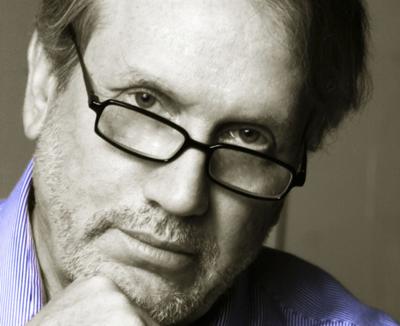Blog
A Second Civil War? Or American Pie?

For those of you who think a “second American Civil War” is a good idea, I’m here to tell you that it’s not just dumb; it’s ludicrously stupid … imbecilic. Any public official who would suggest such should be drummed out of office with the next election.
There has been unrestrained, persistent talk of a second American Civil War over the past year. It had been confined to the far right and people like U.S. Rep. Madison Cawthorn, who predicted “bloodshed” a year ago, saying,. “There’s nothing that I would dread doing more than having to pick up arms against a fellow American.” He was drummed out of office in last spring’s North Carolina primary.
But this notion of political violence is now metastasizing among the fringes of both Republican and Democrats. A University of California Davis poll found 50.1% agree that “in the next several years, there will be civil war in the United States.”
“We expected the findings to be concerning, but these exceeded our worst expectations,” said Garen Wintemute, lead author of the study.
More than half of Donald Trump voters (52%) and 41% of Joe Biden voters expressed support for cleaving the country along political lines, according to a poll from the University of Virginia’s Center for Politics. “The divide between Trump and Biden voters is deep, wide, and dangerous,” said UVA Center for Politics Director Larry J. Sabato. “The scope is unprecedented, and it will not be easily fixed.”
For those of you who think espousing a second civil war is an idea of political merit, I would invite you to watch the nine-episodes of Ken Burns’ “The Civil War.” You will learn that it unleashed a vast array of unintended, deadly consequences. Between the time the battle lines were drawn in the front yard of Wilmer McLean’s house in Manassas and ended four years later in McLean’s parlor at Appomattox (he moved because of the epic bloodshed), there was a torrent of tragedy and atrocity that came with this attempted cleaving of our nation.
About 1.55 million soldiers served in the Federal armies, and about 800,000 men with Confederate forces according to Study.com. Battle deaths included 360,000 for the Union and 260,000 for the Confederates. An estimated 388,580 men perished due to disease. It killed about 2% of the population.
The financial costs include $3.36 billion spent by the Union and $3.28 billion by the Confederates for a total of $6.64 billion (or about $90 billion today).
That, for a war that most people of the day thought would only last a few weeks. It turned out in a way no one – not Abraham Lincoln, not Robert E. Lee, nor my great great grandfather Harvey Platt – could have anticipated. Harvey Platt mustered with the Indiana 9th at Aurora, took a shell to the head at the Battle of Laurel Hill, and ended up on his Napolean, Ind., farm wearing a cork hat to keep his brain from frying under a surgically placed metal plate.
I have a second viewing assignment for those of you who might think a second civil war is a time that’s come. It’s Mark Moorman’s documentary, “The Day The Music Died: The Story of Don McLean’s American Pie.”
Don McLean’s “American Pie” is an epic song released in 1971 at the time the Vietnam War threatened to cleave our nation asunder. It recounts the tragic Feb. 3, 1959, plane crash that took the lives of rock ‘n’ roll legends Buddy Holly, 17-year-old Ritchie Valens, and the Big Bopper, about three miles from the Clear Lake, Iowa, airport..
It ends ominously, with McLean singing, “And the three men I admire most; The Father, Son, and the Holy Ghost; They caught the last train for the coast; The day the music died.” That suggests a military or environmental crisis.
Except, the music hasn’t died. We learn in this documentary how McLean had fought with his father over career choices on the night the latter would die of a heart attack. His producer, Ed Freeman, wasn’t originally impressed with this song. Freeman reflects wistfully on the civil rights movement, the Kennedy and King assassinations, and peace initiatives of the era that helped create the song. “For me, ‘American Pie’ is the eulogy for a dream that didn’t take place,” Freeman observes.
The first American Civil War created the societal petri dish that allowed “American Pie” to spring to life a little more than a century after it ended.
Wilmer McLean’s parlor allowed Generals Grant and Lee to end the American Civil War in a way that created what we have today.
Don McLean’s “American Pie” shows us that America remains the land of the possible. It’s a deeply flawed nation, with many problems, inequities and injustices. But surviving civil war, Jim Crow and the movements of Blacks, women, labor and those on behalf of the unborn, this song is a beacon. You probably know the words. If you hear it in a public setting in Muncie, Chicago, London, Berlin or Prague, people of all tongues will join in, singing along in English.
Let “American Pie” become our beacon moving forward.
The columnist is publisher of Howey Politics Indiana at www.howeypolitics.com. Find Howey on Facebook and Twitter @hwypol.
